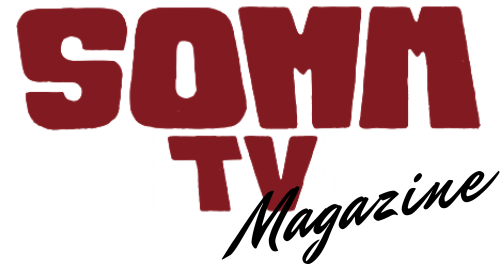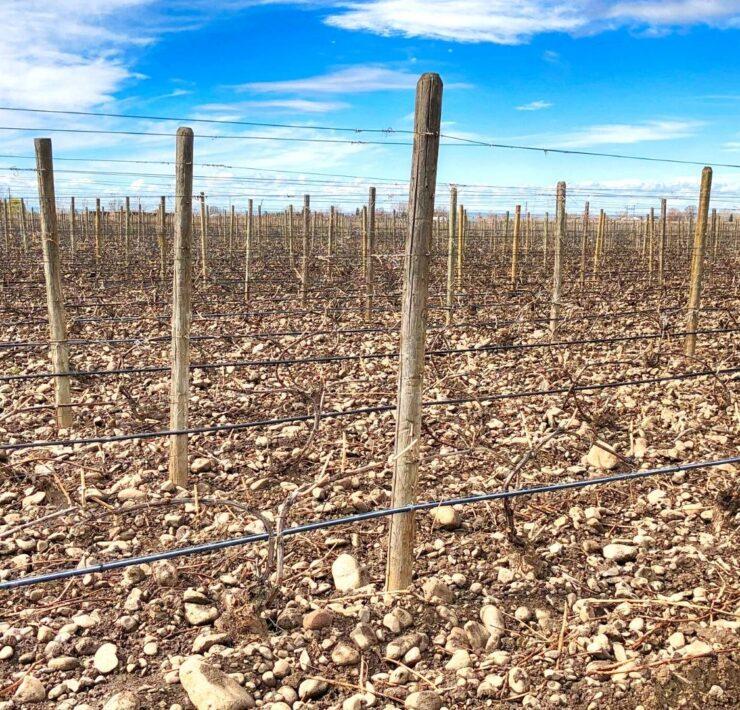The folks who work in the nation’s greatest vineyards toil for long hours, performing repetitive tasks on their feet, day after day. Their efforts, experience, and know-how, can differentiate a great vintage from an exceptional one. And the results of their hard work directly impact a brand’s relative success or failure.
And yet most of those people don’t have access to healthcare. According to the most recent numbers from the Department of Labor, only 43% of farmworkers have health insurance. That number has been steadily declining over the decades, in 2000, 76% had health insurance. In comparison to the general population, 91.4% of people in the U.S. have coverage, according to the U.S. Census.
This is a challenge under normal circumstances, especially in such a physically demanding field. Wear and tear on workers’ bodies can shorten careers and have severe health implications. But it became a near-crisis during the pandemic. In addition to not having healthcare, few agricultural workers have paid sick leave. Any workday spent at home sick or in the doctor’s office results in no pay and potentially infuriating management, particularly during harvest.
What’s the solution? We all know that truly “fixing” the healthcare system would entail instituting a complex array of state and federal mandates. Few are holding their breath for such a drastic overhaul. Instead, some winemakers are working toward funding vineyard worker healthcare through collaborations and charitable brands.
Collaborating to Fund Vineyard Worker Healthcare
Even thirty years ago, the unsustainability of our healthcare system seemed clear. A group of progressive Oregon winery owners and physicians got together to help vineyard workers meet basic healthcare needs. Since 1992, ¡Salud! has raised millions of dollars and performed thousands of healthcare screenings and services for workers who would otherwise be unable to access even the most elemental tests and services.
A daughter of Elk Cove’s founding winemakers Pat and Joe Campbell, Anna Campbell, says that her father was inspired to get involved through his other job as an emergency room doctor.
“He regularly saw acute medical problems in agricultural workers who didn’t have access to preventative or routine care,” Campbell, now the creative director at Elk Cove, says. “Our parents also knew first-hand the physical demands of vineyard work because, for the first ten years, they did almost all of it themselves, with a little help from us kids.”
Currently, Elk Cove can offer full-time employment with health insurance to 15 agricultural workers. However, Campbell realizes that many small wineries cannot do so, so Elk Cove continues to invest in ¡Salud!. It’s a “lifeline” to the vineyard stewards and their families who work so hard to make every vintage a great one.
Because English is not the first language for many Oregon vineyard stewards, key personnel at ¡Salud! are fluent in Spanish and English.
“Our program is bilingual and bicultural. No one will ever ask for documentation of residency status before performing a service or test,” explains Stephanie Buchanan, manager of philanthropy at ¡Salud!. “Our goal is to provide workers with the tests and services they need. If they discover an issue that needs further testing and treatment, we work to help them manage those bills.”
This entails bringing mobile medical units out to vineyards and in central places across wine country for easy worker access. Last year alone, almost 3,000 workers were treated. More than 500 lipid panels, 150 diabetes screenings, hundreds of COVID and other vaccinations were performed, dozens of glasses and essential dental services were provided, and $180,615 was paid by ¡Salud! to providers.
The Importance of Donations
None of this, Buchanan says, could be done without the help of the annual fundraiser (last year’s raised more than $850,000), the winemakers who agree to be part of the program (35 donate wines to the auction to raise funds), and the medical groups who help sponsor the program.
The OHSU Health Hillsboro Medical Center’s ¡Salud! program, in fact, receives all its funding from these donations.
Leda Garside, a nurse, educator, cultural liaison and services manager with ¡Salud!, is one of the program’s founding health providers. She has seen how the services have touched workers’ lives.
“The services have assisted so many, enabling them to connect with much-needed services. It allows for ongoing care and management of chronic issues,” Garside says. “But it has also helped patients learn how to access services and maneuver the complexities of the health care system regardless of healthcare coverage.”
After navigating a rough few years amid the pandemic, ¡Salud! is growing in response to the great need, Buchanan says.
“Next year, we will add a second mobile medical unit, nicknamed ‘La Madrina,’ after Nancy Ponzi, one of the program’s founders,” she explains. This larger unit will feature a private exam area and more screening capabilities.
Launching a Brand to Fund Vineyard Worker Healthcare
Others, like Ashley Trout, are so moved by the healthcare crisis of workers that they’ve launched brands wholly dedicated to funding their care.
Trout found inspiration to do so after becoming increasingly alarmed by what she saw as a lack of empathy for the people who ensure the success of the luxury wine business.
“I created Vital Winery in 2016 because I wanted to make sure I was making the world a better place,” Trout says, noting the irony that the wine and hospitality industries broadly are set up to serve the public but fail to provide the basic service of healthcare to the people who make it hum.

Walla Walla’s Vital Winery donates 100% of its net profit to ensure vineyard and winery workers get access to healthcare; like ¡Salud!, it entails many moving parts and partnerships.
“All of the grapes for our wines are donated by local growers and winemakers,” Trout says. Trout makes wines from those grapes, and the partial profit from the 1,200 annual cases goes to the SOS Healthcare Services, which provides free services and bilingual care, no questions asked, at a clinic in College Place, WA.

Heightened Pandemic Needs
The pandemic amplified the mission, Trout says.
“We were able to provide workers with more than 320 days worth of lost wages when they or someone else in their crew tested positive for COVID,” she explains.
While Vital runs on wine sales, donations have also provided opportunities to grow its mission. Funds from the Auction of Washington Wines partially benefit Vital Winery. Last year’s auction enabled the nonprofit to create a full-time position dedicated to COVID education and healthcare access for vineyard stewards.
“We have been able to co-fund a Promotre de Salud position for three years, in partnership with Providence St. Mary,” Trout says. “They will work with the LatinX agricultural community and provide everything from health screenings and vaccinations to glasses for workers’ children.”
Trout also plans to pump up Vital’s volume in a bid to do more.
“We are launching a guest winemaker program, and we hope to triple our output in the coming years,” Trout says.
Last year, Vital Winery opened its first tasting room downtown in Walla Walla. Wine is, and probably always will be, a luxury product. Healthcare wasn’t always, and should not be, a luxury product. While we can’t all found nonprofits or brands, we can all support their missions. Contribute to ¡Salud! here. Donate to Vital Winery here, or buy their wine here.









